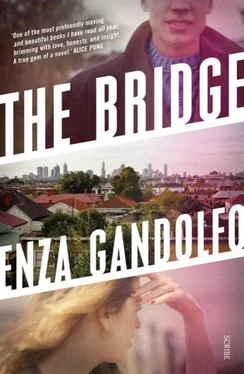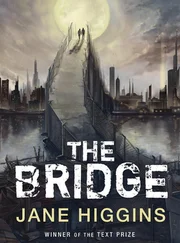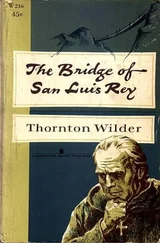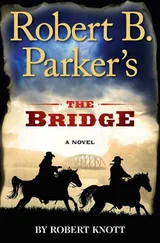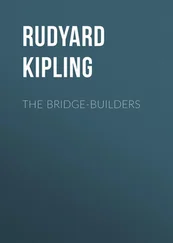Initially he’d gone to all the stop-work meetings, voted to down tools, and marched off the site. So many strikes, sometimes it seemed they were at a stop-work meeting or on strike and picketing the site every week. A day or a half-day lost in a fortnight. But nothing had changed, and over time they’d gotten sick of it, they’d given up. He wanted to save up for a house, Sam for a wedding. They caved. They joined more than one union, so they could do what the engineers asked, even when they didn’t have the right training. They started voting against the strikes. The companies continued to blame the men for the delays and the mounting costs, the timelines stretched further and further. The bridge had become the butt of jokes in the newspapers and on the TV news, on talkback radio, at barbecues, at the bar in pubs across both sides of the river. That bridge ain’t ever going to be finished . The government blamed the companies, the companies blamed the unions, the unions blamed the companies, but in the end the workers were always the scapegoats. They were the ones who paid the price for other people’s bad decisions.
Sweat dripped down his neck. His knee throbbed. The pain intensified. When he stopped running, he found himself at the Altona end of Francis Street, outside the Footscray Cemetery. His knee was the size of a football. He leant against the cyclone fence and gazed across the cemetery. It was a bleak, arid landscape, a wasteland of concrete tombstones. There were few trees. And some splashes of colour from the bouquets of decaying flowers, of faded plastic flowers.
He could see that there were mounds of dirt and empty plots waiting for the dead. It was here that on the next day, and the day after, and the day after that, he’d stand watching his workmates being lowered into the ground. It was next to those plots he would stand, watching other men’s wives and children, mothers and fathers, brothers and sisters, weeping. Bob would end up here. And Slav too. Slav, who grew up with a view of the Adriatic Sea, here between two major roads, surrounded by truck fumes and car exhaust.
Nauseous, Antonello leaned against the cyclone fence, which rattled under his weight. He vomited. The acrid stench made him gag, and he threw up again. The back of his throat ached. His eyes watered over, and for moments the world was a blur. When he recovered himself, he looked up. On the other side of the fence an old woman dressed in black — including a black scarf and thick tights — was staring at him.
‘Are you okay?’ she asked in a Greek accent, and he noticed that around her neck hung a thick gold chain and a cross. Without waiting for a response, she asked, ‘You Greek?’
‘Sorry.’ Antonello shook his head. She backed away from the fence. ‘Sorry, I’m okay. Just a bit sick. Sorry, not Greek. Italian.’
The woman shrugged. ‘ Una faccia una razza ,’ she said.
‘You speak Italian?’
‘No,’ she said. ‘Only this. My Italian neighbour likes to say this.’
Antonello nodded. It was a common enough saying among Italian and Greeks in Melbourne. It translated to one face, one race or we are all wogs here . It wasn’t only the Australians who couldn’t tell the Greeks and Italians apart; even the Greeks and Italians could get it wrong. And there was a connection between the two ethnic groups, even though most Italians hadn’t met any Greeks, and most Greeks hadn’t met an Italian before they arrived in Australia.
‘Here, you have one of these,’ she said, handing him barley sugar through the gap in the fence. ‘Sometimes I cry too much, I feel sick. Sugar helps.’
Antonello took the lolly. Please don’t ask me, he thought, please don’t ask me why I’m here.
‘Before my son died, I laughed all day. Now it is hard to laugh. My daughters say I must stop crying. I try. I smile at home. I am a good mother to them. I am a good grandmother. But in the daytime, they go to work and I come here to cry.’
‘I’m sorry,’ he said. He wanted to ask her how she managed smiling at home, not crying. How she managed these two lives. How she managed to keep living.
‘Will you come to see my boy?’ She pointed to a row of graves to their left. His first impulse was to say no, but the woman caught him in her gaze, her green eyes beckoning. Initially he had assumed she was his mother’s age, but strands of grey hair were visible under the scarf, and the skin around her eyes was much more heavily wrinkled than Emilia’s. Perhaps she was older, or perhaps grief had aged her.
‘Okay,’ he said.
‘The gate is there,’ she responded, pointing to a spot further along the fence.
Antonello unwrapped the barley sugar as he limped along the path. She waited for him on the other side of the gate.
‘You’re hurt?’
‘Just my knee, it’ll be okay,’ he said, taking the bucket of flowers she was carrying. It was full of arum lilies, but they weren’t white like the ones in his parents’ garden — these were a mournful purple, and their odour was musty and damp. She led him along the cracked concrete path, between one of several long rows of graves, until they reached a black marble tombstone.
‘My Dimitri and his father,’ she said. Antonello set the bucket on the ground.
The headstone was divided into three sections. On the left there was a photograph of a man in his early fifties, bald, with a large bulbous nose and black eyes. He was dressed in a suit and tie, his expression serious. Beneath it, Eleftherios Pantelidis, 1909–1969 , was engraved in gold letters. The rest of the script was in Greek, and Antonello didn’t understand it. In the centre of the headstone there were two photographs, both of the same young man. In one he was wearing a leather jacket, unzipped, over a white t-shirt. He leant against a motorbike in a James Dean pose, thumbs of both hands in his jean pockets, slick coiffed black hair, eyes gazing into the distance, and only the slightest hint of a grin. In the second photograph, a close-up, Antonello could see his green eyes, same green as his mother’s. Dimitri Pantelidis, 1952–1968 .
‘My husband can’t live after my son died,’ she said as she reached out to touch the photograph of her son. ‘One day he fell to the ground and did not get up again. I wanted to die too. But I breathe. I walk. I stand. I don’t fall.’ She pointed to the blank section of the headstone. ‘One day. One day I will be here too. Everybody comes here one day.’
Antonello felt it again, the craving to be dead. If only he could fall to the ground and not get up again, like Eleftherios. To fall into a long and deep sleep.
‘People say my husband loved my son too much. But I love my son too much. I gave birth to him. I fed him. I looked after him. My husband was weak. He left me to suffer alone.’ She pulled the dead flowers from the vase and cleaned the grave, wiping it with a damp cloth. Antonello threw the dead flowers in the bin. When he came back, she had filled the vases with clean water and was arranging the lilies. She worked in silence, and he was grateful she didn’t ask him questions.
‘I need to go now,’ he said.
‘God bless you,’ she said. As he walked away, she took her rosary beads from her pocket and turned back to the grave.
He drifted back towards the bungalow slowly. His knee was still aching. He avoided the streets from which the broken bridge might be visible. His rage, temporarily subdued, had retreated but it hadn’t disappeared — he could feel it there, gnawing at edges of his consciousness. In its place, a pulsating anxiety. If he hadn’t swapped shifts with Ted, he would most likely be dead. He should’ve been there with his mates. He should’ve fallen with the bridge, with Bob. He should’ve been crushed in the lift with Slav. If he shared these thoughts with the other men, with Paolina, or with his parents, they’d probably think him crazy. He was alive. He should be grateful for his life, he knew that, but he wasn’t grateful, and he had no idea how he was supposed to manage living, breathing, being with Paolina.
Читать дальше
